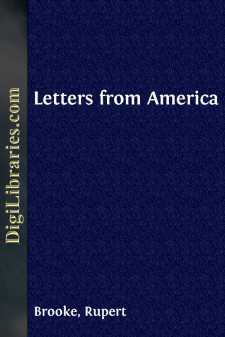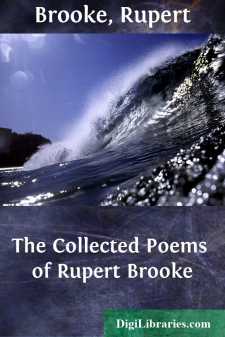Categories
- Antiques & Collectibles 13
- Architecture 36
- Art 48
- Bibles 22
- Biography & Autobiography 813
- Body, Mind & Spirit 142
- Business & Economics 28
- Children's Books 17
- Children's Fiction 14
- Computers 4
- Cooking 94
- Crafts & Hobbies 4
- Drama 346
- Education 46
- Family & Relationships 57
- Fiction 11829
- Games 19
- Gardening 17
- Health & Fitness 34
- History 1377
- House & Home 1
- Humor 147
- Juvenile Fiction 1873
- Juvenile Nonfiction 202
- Language Arts & Disciplines 88
- Law 16
- Literary Collections 686
- Literary Criticism 179
- Mathematics 13
- Medical 41
- Music 40
- Nature 179
- Non-Classifiable 1768
- Performing Arts 7
- Periodicals 1453
- Philosophy 64
- Photography 2
- Poetry 896
- Political Science 203
- Psychology 42
- Reference 154
- Religion 513
- Science 126
- Self-Help 84
- Social Science 81
- Sports & Recreation 34
- Study Aids 3
- Technology & Engineering 59
- Transportation 23
- Travel 463
- True Crime 29
Rupert Brooke
Rupert Brooke was an early 20th-century English poet known for his idealistic war sonnets, particularly those written during World War I. His most famous work is the collection "1914 and Other Poems," which includes his celebrated sonnet "The Soldier." Brooke's poetry often reflected themes of patriotism and the beauty of English countryside, which made him popular during the early years of the war. Sadly, he died in 1915 from sepsis while en route to the Gallipoli campaign, becoming a symbol of the tragic loss of young talent during the war.
Author's Books:
Sort by:
by:
Rupert Brooke
Nothing more generally or more recurrently solicits us, in the light of literature, I think, than the interest of our learning how the poet, the true poet, and above all the particular one with whom we may for the moment be concerned, has come into his estate, asserted and preserved his identity, worked out his question of sticking to that and to nothing else; and has so been able to reach us and touch...
more...
by:
Rupert Brooke
Rupert Brooke was both fair to see and winning in his ways. There was at the first contact both bloom and charm; and most of all there was life. To use the word his friends describe him by, he was "vivid". This vitality, though manifold in expression, is felt primarily in his sensations — surprise mingled with delight — "One after one, like tasting a sweet food." This is life's...
more...



